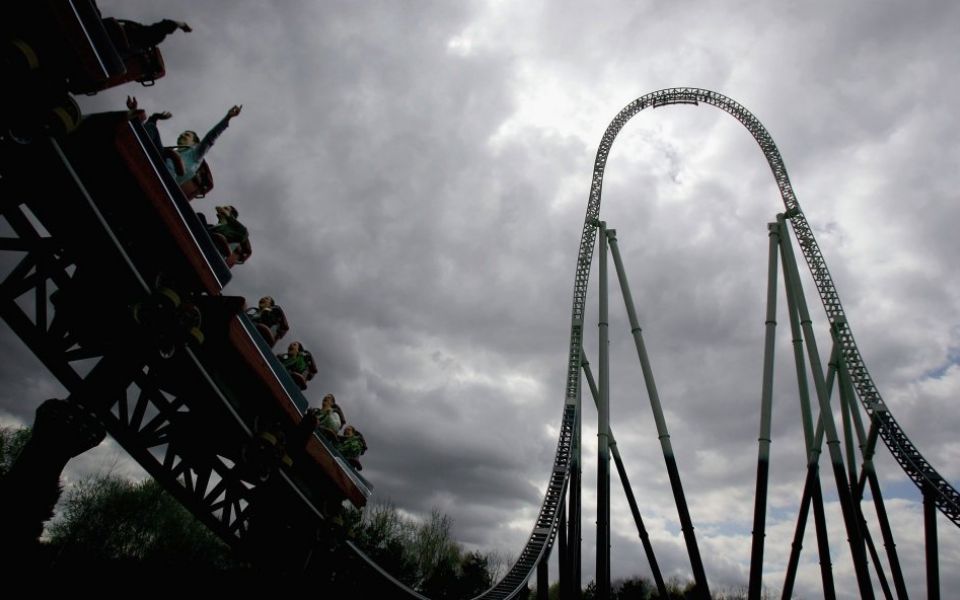
Who needs Thorpe Park when you have Brexit?

Up one minute, hands in the air, down the next, faces distorted by politico-economic G-force. Who needs Thorpe Park when you've got Brexit?
The roller-coaster ride continued apace last week, with news that the economy grew less than previously thought in the fourth quarter of 2017 delivering the latest stomach-churning dip.
In a definite curveball for the markets, the Office for National Statistics downgraded UK growth from 0.5 per cent to 0.4 per cent on Thursday morning. Not a huge drop, but a very symbolic one.
"A number of very small revisions to mining, energy generation and services were enough to see a slight downward revision to quarterly growth," said Darren Morgan, the ONS' unequivocally named Head of GDP.
On this estimate, the UK economy delivered growth of just 1.4 per cent last year, making it the slowest growing of all the major economies, lagging even Italy and Japan — and representing another blow to the Government as it enters the business end of Brexit.
It also, of course, undermines the case for interest rate rises, or at the very least as many rises as some hawks has been pencilling in for 2018 (as many as three).
Inflation remains stubbornly high, yes, but with the economy as fragile as it clearly is, markets and the MPC in particular could well be in for an awkward rethink.
After all, only a week or two before, Mark Carney had declared (in typical quasi-robotic central bank speak) that "in order to bring inflation back to target, it is likely to be necessary to raise interest rates, to a limited degree, in a gradual process, but somewhat earlier and to a somewhat greater extent than we had thought in November.”
The odds of that happening have now lengthened dramatically. If anything, this is an economy that needs warming up, not cooling down.
But what it demonstrates above all is the sheer lack of economic visibility in the current climate. One minute you’re planning a series of rate rises against a more favourable economic backdrop, the next your plans are, well, simply up in the air.
The hope is that the UK economy is dragged into better growth by the strength of its trading partners and the overall benign global economic outlook.
But any domestic-led growth is likely to be held in check by the continuing lack of clarity over Brexit – which is leading many businesses to defer investment decisions until negotiations between Britain and the EU begin in earnest next month.
While many disagree on Brexit, what we can all agree is that it has created radical economic and political uncertainty. Hands on heart, not one of us knows what’s coming next.
To find out how INFINOX Capital can help you reach your financial goals, visit www.infinox.com.